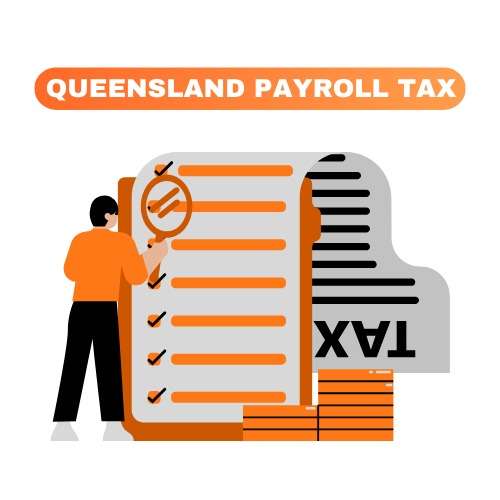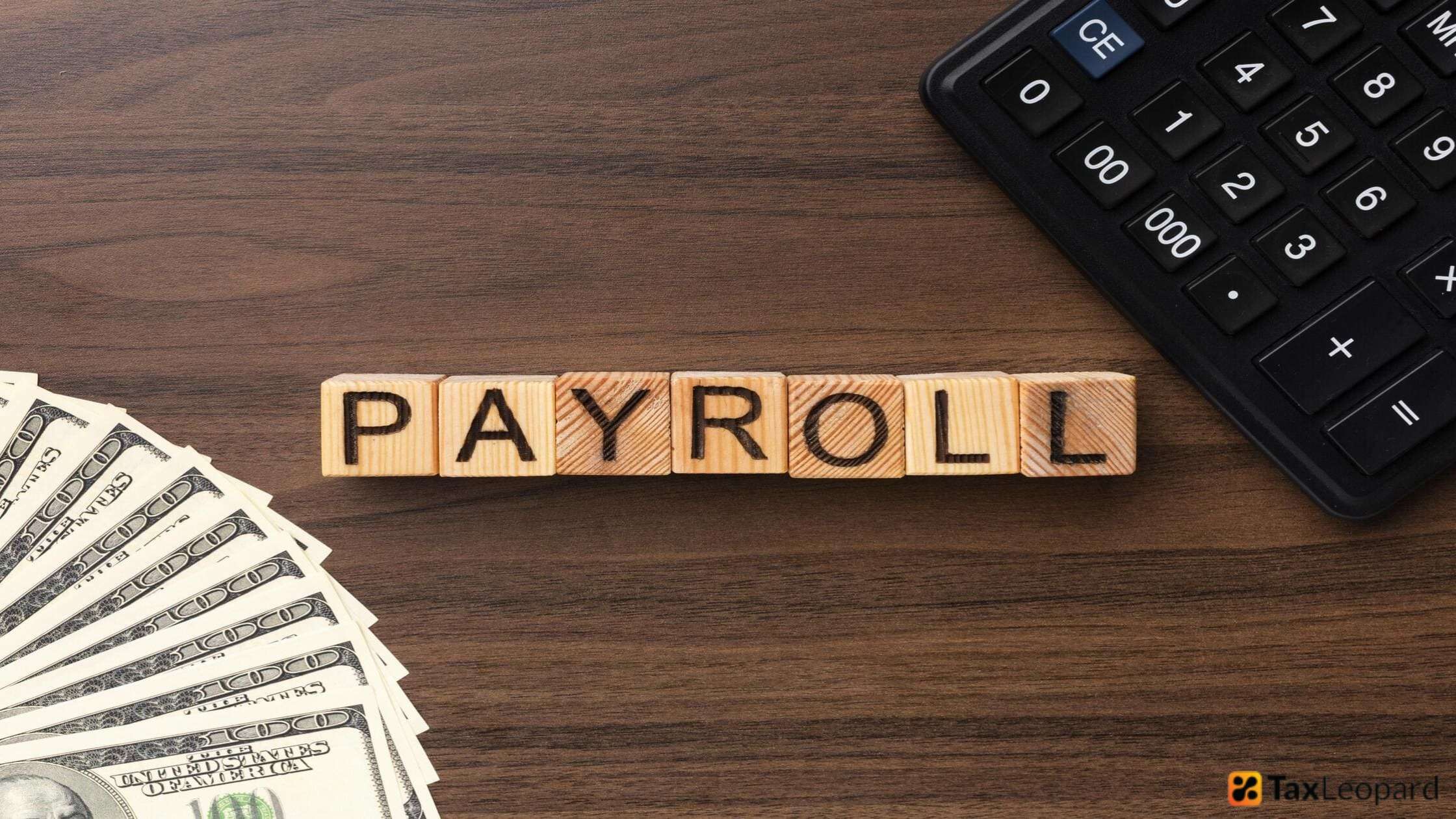“Are you navigating the complexities of Queensland payroll tax?”
This tax, a state-imposed levy on businesses, is based on the total wages paid to employees. It plays a crucial role in Queensland’s revenue system, funding essential public services. Understanding this tax is vital for businesses operating in Queensland. It requires familiarity with the tax rate, exemptions, deductions, and compliance procedures. Given its direct impact on business finances, effective management of payroll tax obligations is essential. As legislation and rates may change, staying informed and up-to-date is key. This overview provides a comprehensive guide to understanding and managing Queensland’s payroll tax, ensuring businesses can navigate these waters with confidence.
What is Payroll Tax?
Government agencies impose payroll taxes on employers based on the total amount of salaries or wages paid to their employees. Its primary purpose is to generate revenue for government projects and services. This tax varies depending on the region and specific legislation, reflecting different rates and thresholds. Payroll tax is a significant source of revenue for governments, contributing to public sectors like education, healthcare, and infrastructure. It’s crucial for businesses to comply with these taxes to avoid legal penalties. Payroll tax is different from personal income tax, which employees pay directly from their earnings.
Queensland Payroll Tax: An Overview

In Queensland, Australia, payroll tax is a state tax administered by the Queensland Government. It’s levied on businesses with a wage bill exceeding a certain threshold, which is periodically reviewed and adjusted. Queensland’s payroll tax rate and threshold are set to balance the need for revenue with the impact on businesses. This tax contributes significantly to Queensland’s budget, supporting state-funded services and initiatives. For businesses operating in Queensland, understanding and adhering to the payroll tax regulations is essential for legal compliance and financial planning. The state government provides guidance and support to help businesses navigate these tax requirements.
Current Rates of Queensland Payroll Tax
Queensland’s payroll tax rates are established based on the annual taxable wages paid by an employer. According to the Queensland Revenue Office, the general rate was set at 4.75%. However, this rate can vary for larger businesses. For companies with annual taxable wages exceeding a specified limit, a higher rate applies. This progressive structure aims to balance the tax burden across various business sizes. It’s essential for employers to stay updated, as these rates are subject to legislative changes. Regular consultation of official Queensland government resources is advised for the most current information.
Threshold Levels for Queensland Payroll Tax
The threshold level for Queensland’s payroll tax plays a pivotal role in determining tax liability. This threshold is the amount of annual taxable wages an employer can pay before incurring payroll tax. It acts as a relief measure for smaller businesses, ensuring they’re not overburdened. The exact threshold value can vary over time, reflecting economic and policy adjustments. Once an employer’s annual taxable wages surpass this threshold, payroll tax becomes applicable at the prescribed rate. Understanding this threshold is crucial for businesses to accurately assess their tax obligations and plan their finances accordingly.
According to the Queensland Revenue Office, the threshold rates for the 2013–14 financial year onwards are given below:
| Financial year | Threshold | ||
|---|---|---|---|
| Weekly | Monthly | Yearly | |
| 2019–20 to 2023–24 | $25,000 | $108,333 | $1,300,000 |
| 2013–14 to 2018–19 | $21,153 | $91,666 | $1,100,000 |
Calculating Your Payroll Tax
To accurately calculate your payroll tax in Queensland, you must follow a structured, step-by-step process. Firstly, aggregate your total wages, including salaries, superannuation, and fringe benefits. Ensure that these figures are up-to-date and accurate. Next, apply the current payroll tax rate to your wage total. Remember, this rate can vary, so verify the current rate from the Queensland Government’s official resources. If your total wages exceed the exemption threshold, only then will you be liable for payroll tax. It’s critical to differentiate between taxable and non-taxable wages, as mistakes here can lead to inaccuracies in your calculation. This process requires meticulous attention to detail to ensure compliance with state regulations.
Exemptions and Deductions
Understanding exemptions and deductions is crucial for an accurate payroll tax calculation in Queensland. Several types of exemptions may apply, such as those for wages paid to apprentices and trainees. Additionally, charitable organizations often qualify for specific exemptions. Regarding deductions, you can typically deduct the amount of Australian taxable wages paid from your total taxable wages. This includes wages subject to payroll tax in another state or territory. It’s important to familiarize yourself with these nuances, as they significantly impact the final payroll tax amount. Regularly consulting the Queensland Government’s updates on exemptions and deductions can help maintain compliance and financial efficiency.
Filing and Payment Deadlines
Adhering to filing and payment deadlines is critical to managing your payroll tax obligations in Queensland. These deadlines are strictly enforced, and failure to comply can result in penalties. Generally, payroll tax returns must be filed monthly, with payments due seven days after the end of each month. However, for businesses with smaller wage amounts, quarterly or even annual filing might be an option. It’s essential to confirm your filing status and adhere to the relevant schedule. Year-end reconciliations are also a crucial part of the process, requiring thoroughness and accuracy. Staying informed about any changes in deadlines, which can occasionally occur, ensures timely compliance and avoids unnecessary financial penalties.
Conclusion
Navigating Queensland’s payroll tax landscape requires diligence, awareness, and proactive management. From calculating the tax accurately, understanding the exemptions and deductions, and adhering to strict filing and payment deadlines, businesses must maintain compliance to avoid penalties. As regulations and rates can change, staying informed is crucial. Effectively managing this aspect of your business not only ensures compliance but also optimizes financial health. How will your business adapt its practices to meet these ongoing payroll tax requirements?
FAQs
1. What is the current payroll tax rate in Queensland?
The payroll tax rate in Queensland is subject to change. It’s advisable to check the latest rate on the Queensland Government’s official website for the most current information.
2. Are there any exemptions available for Queensland payroll tax?
Yes, exemptions exist, such as wages paid to apprentices and trainees and specific charitable organizations. It’s important to review these exemptions in detail, as they may significantly impact your tax calculations.
3. How often do I need to file payroll tax returns in Queensland?
Generally, payroll tax returns in Queensland are filed monthly. However, for businesses with smaller wage amounts, quarterly or annual filing might be an option. It’s essential to confirm your specific filing requirements.
4. What happens if I miss a payroll tax payment deadline in Queensland?
Missing a payment deadline can result in penalties. It’s crucial to adhere to the specified deadlines to avoid these penalties and maintain compliance.
5. Can I deduct wages paid in other states from my Queensland payroll tax?
Yes, you can generally deduct the amount of Australian taxable wages paid in other states from your total taxable wages for Queensland payroll tax purposes. This helps ensure you’re not overpaying taxes across different jurisdictions.

